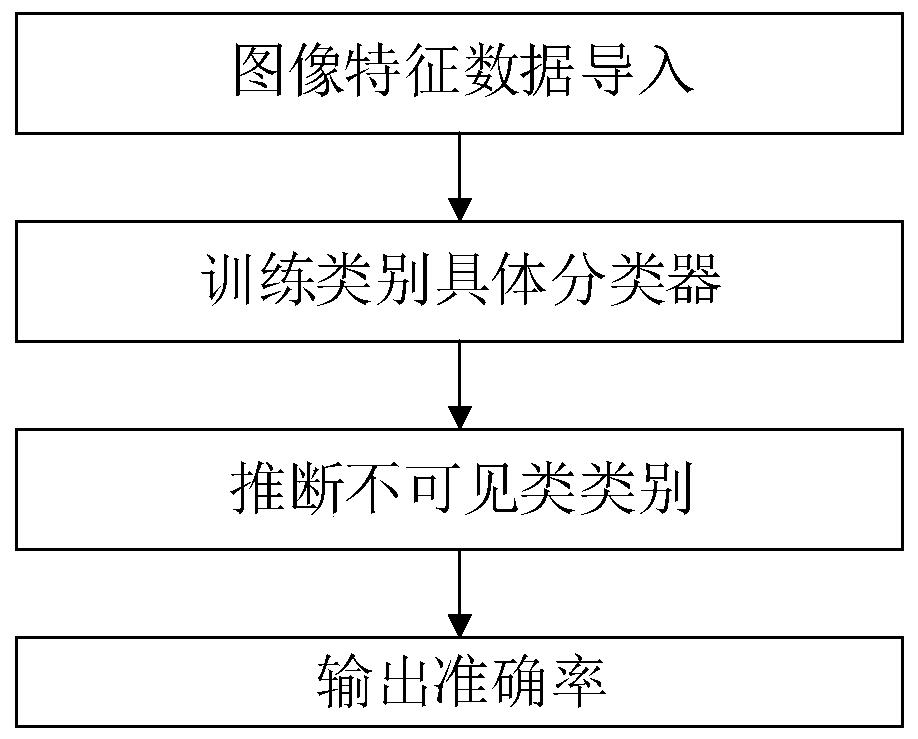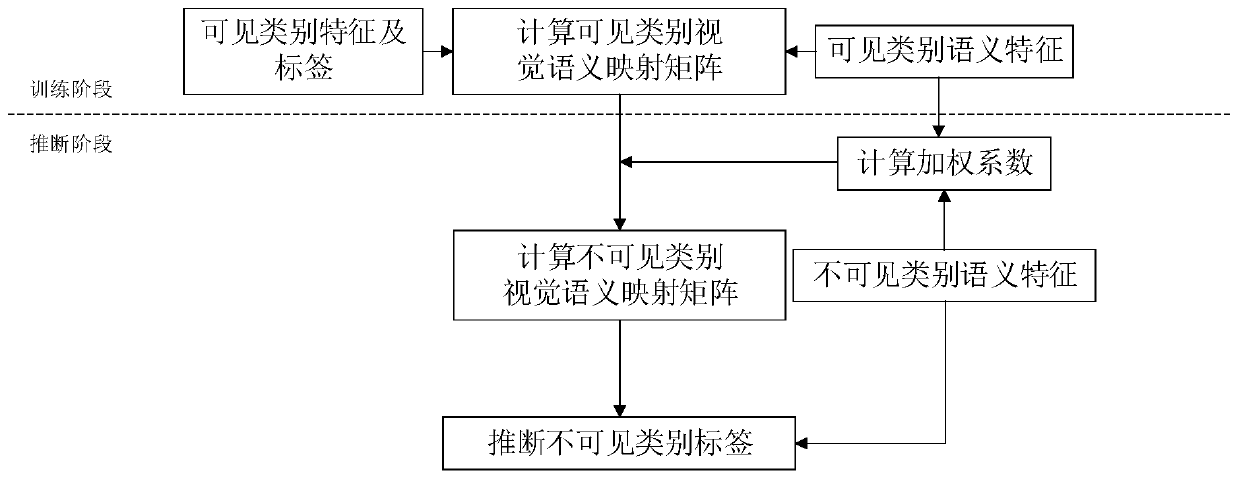Zero-sample deep-sea biological picture classification method based on multiple classifiers
A technology of image classification and multi-classifiers, which is applied to instruments, computer components, character and pattern recognition, etc., to achieve high feasibility, improve classification accuracy, and reduce domain drift
- Summary
- Abstract
- Description
- Claims
- Application Information
AI Technical Summary
Problems solved by technology
Method used
Image
Examples
Embodiment
[0037] like figure 1 As shown, this embodiment discloses a zero-sample deep-sea biological picture classification method based on multi-classifiers, which sequentially includes: image feature data import steps, category-specific classifier training steps, and invisible category inference steps.
[0038] (1) Image feature data import steps
[0039] Import image feature data, use known public datasets, or use GoogleNet network to extract image features and import datasets. The data set consists of two parts: visible category data and invisible category data, which do not overlap with each other. The visible category is the common marine biological species with rich data, including the categories that the model needs to learn. The invisible category is the deep-sea marine biological species with scarce data. Contains the categories that the model needs to recognize. The dataset contains visual feature data, labels and semantic descriptions of each image. The label is the categor...
PUM
 Login to View More
Login to View More Abstract
Description
Claims
Application Information
 Login to View More
Login to View More - Generate Ideas
- Intellectual Property
- Life Sciences
- Materials
- Tech Scout
- Unparalleled Data Quality
- Higher Quality Content
- 60% Fewer Hallucinations
Browse by: Latest US Patents, China's latest patents, Technical Efficacy Thesaurus, Application Domain, Technology Topic, Popular Technical Reports.
© 2025 PatSnap. All rights reserved.Legal|Privacy policy|Modern Slavery Act Transparency Statement|Sitemap|About US| Contact US: help@patsnap.com



